The church is about 52 highway miles west of downtown Saint Louis, Missouri, and is located on the south bank of the Missouri River in Franklin County. The city is named after George Washington, Father of the Country, and the county is named after fellow Founding Father, Benjamin Franklin.
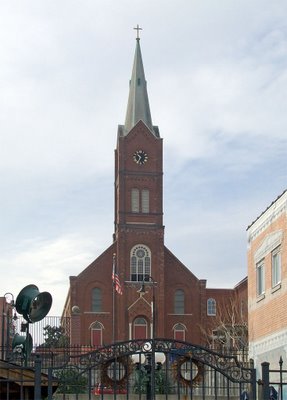
This church dates from 1869.
The first German Catholic settlers came to the area in 1833, and were first ministered to by Jesuits from Saint Charles, Missouri, located down-river from Washington. Their first church, a log cabin, was dedicated in 1834. Members of the Society of Jesus mainly ministered to the parish until 1894. From then until 1990, the parish was operated by members of the Order of Friars Minor.
Click for a history of the parish.
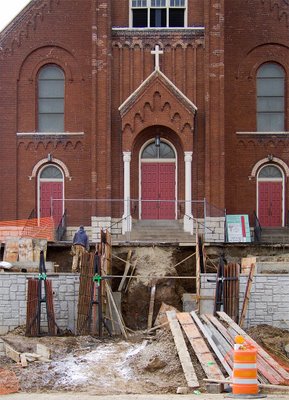
Watch your step. The parish has experienced growth and new construction throughout its history; here workmen have demolished the old steps leading up to the main church door.
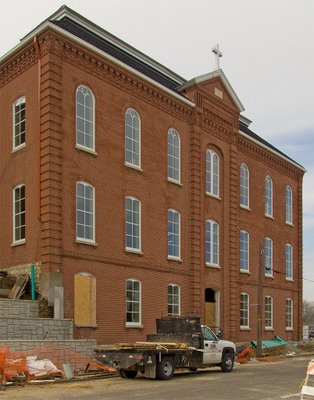
This building next to the church has been gutted and seems that it will serve, in part, as a large new narthex into the church.
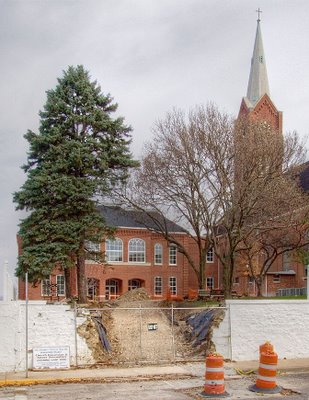
Under construction. The back of the annex appears to be completely new, and will be joined to the church by a wide hall.
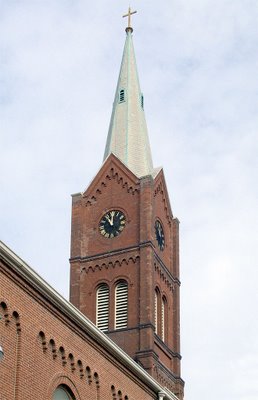
Although Washington as a city dates from 1839, European settlement here predates the town by decades. For a while, this was the westernmost city in the United States.
Here at one time was Saint John's Settlement, on the bank of Saint Johns Creek. Nearby was the Spanish colonial fort San Juan del Misuri, dating from about 1796; if any reader shares with us the precise location of the old fort, they will win great praise!
Much early settlement was encouraged by frontiersman Daniel Boone and his family, under the authority of the Spanish Empire, with the first settlers being mainly Southerners and slave owners. These Americans were overwhelmed by German immigration here in the 1840s and 1850s, which decisively swung Missouri over to the side of the Union during the American Civil War.
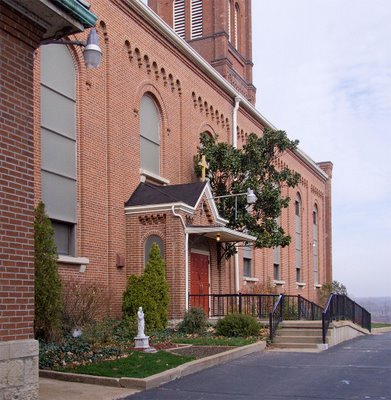
Entrance to the church is now from the side. In the far background you can see trees on the opposite side of the Missouri River.
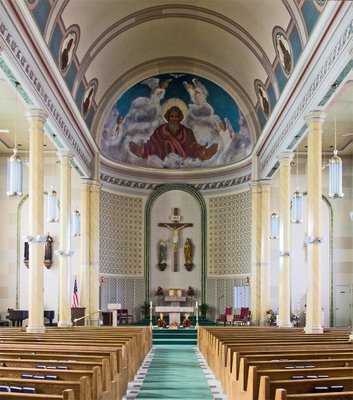
The nave of the church. The interior has been renovated on several occasions; this generally dates from 1965.
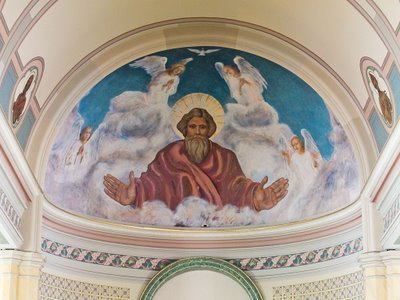
Painting over the altar.
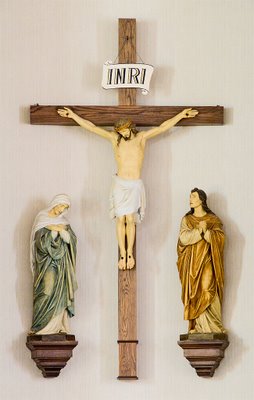
The crucifix.
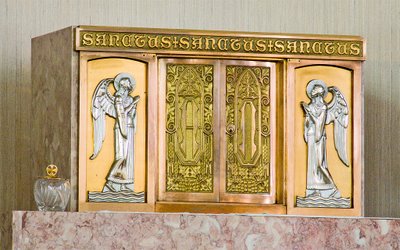
The tabernacle.
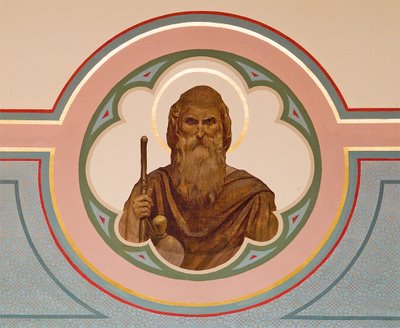
Detail on ceiling.
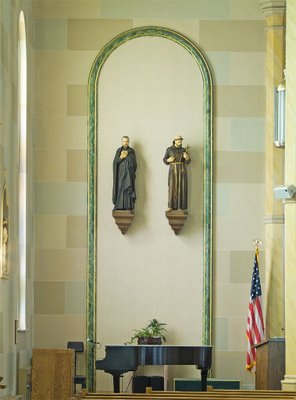
To the left of the altar we have two Saints; perhaps most fittingly a Jesuit and a Franciscan.
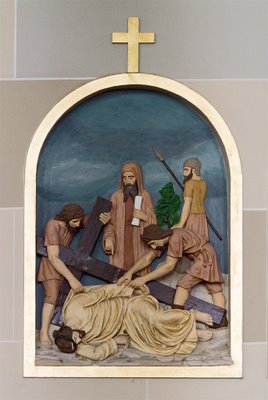
Station of the Cross

A stained glass window with the Assumption of Mary.
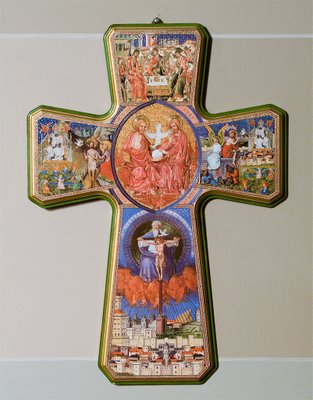
Richly illustrated cross.
Shrine to the Blessed Virgin Mary.
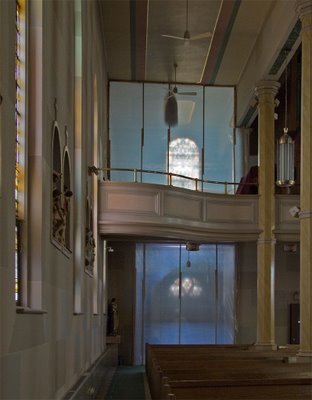
Construction is underway in the back of the church; this will probably be the entrance to the new narthex.
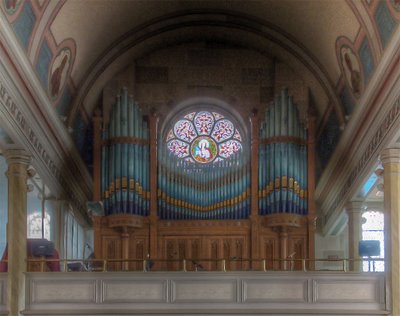
The pipe organ in the choir loft, with the rose window in the background.
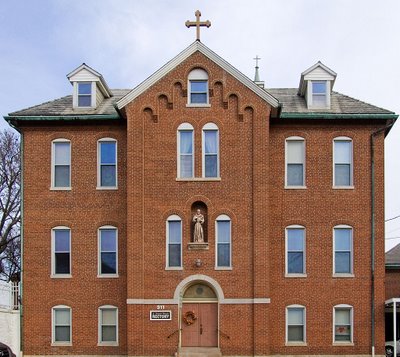
The rectory.
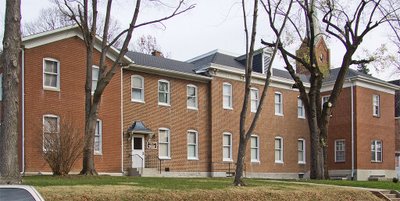
Another building belonging to church; this one obviously has been enlarged several times. The parish also owned a hospital at one time.
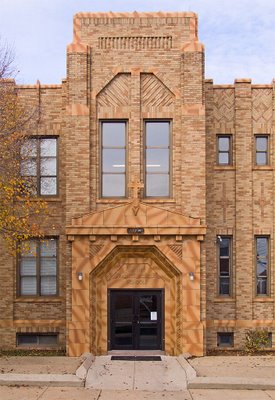
This Art-Deco school building dates from 1935.
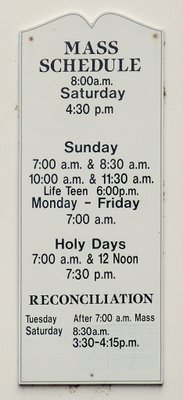
Saint Francis Borgia was a revered Spanish Saint and Jesuit, who restored his family's name to honor after the shameful life of his great-grandfather, Pope Alexander VI.
Address:
310 West Main Street
Washington, Missouri 63090

Isn't the stained-glass window of the Assumption? The disciples are looking into her grave full of flowers as Our Lady ascends into heaven. It reminds me a little of Raphael's Crowning of Mary.
ReplyDeleteThat's my home parish!! Where I received my Vocation to the Priesthood!! Good ol' WashMO!
ReplyDelete